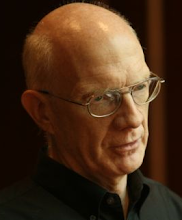 Turn away from your animal kind
Turn away from your animal kindTry to leave your body just to live in your mind
—James Taylor, "Gaia"
This is one of those posts that I could probably take days to carefully write, but I won't. I've been thinking about people's relationships with their bodies. It is such an uneasy thing in the modern world. A massive proportion of Americans (and those in other countries) are obese, overweight, or otherwise obsessed with their bodies.
Datapoint 1. In a recent interview on the PBS NewsHour with Gwen Ifill, Eric Finkelstein, the director of health economics of RTI International, when asked about the cause of the obesity epidemic, said:
Datapoint 1. In a recent interview on the PBS NewsHour with Gwen Ifill, Eric Finkelstein, the director of health economics of RTI International, when asked about the cause of the obesity epidemic, said:
Well, we argue it's because of economics. Essentially, the calculus has changed so it's just easier and cheaper to engage in behaviors that promote obesity and more difficult to engage in those behaviors that are associated with fitness.
Datapoint 2. A recent article in the New York Times discusses in some depth the phenomenon of formerly white-collar Americans indulging in a romance with blue-collar trades and questioning the "hollowness of white-collar work." They romanticize not only the physical challenge but also the skills involved in blue-collar work.
Datapoint 3. I've been observing the number of bike racks on the back of/ on top of cars. It strikes me as intensely ironic that many Americans view bicycles as something that it's OK to use for exercise or recreation, but its somehow weird to ride practically, to commute.
I know, I know, people are frightened of cars. I know, I know, people can't sweat at the office, they might end up smelling bad. But I'm not buying it. I don't think the reason(s) that people don't cycle-commute are practical, because fundamentally, if viewed rationally, the reasons to bike are much stronger than the practical reasons not to bike.
I think at the root, that Finkelstein had it right, it's a deep thing that is rooted in economics and the status associated with that. People don't ride bikes to work because it's practical and frugal to use your body in this way, and therefore somehow low-class. It's high-class (go figure) to demonstrate that you control enough resources to be able to fritter them away.
I'm telling you, people's relationship with their bodies is complex.
Datapoint 3. I've been observing the number of bike racks on the back of/ on top of cars. It strikes me as intensely ironic that many Americans view bicycles as something that it's OK to use for exercise or recreation, but its somehow weird to ride practically, to commute.
I know, I know, people are frightened of cars. I know, I know, people can't sweat at the office, they might end up smelling bad. But I'm not buying it. I don't think the reason(s) that people don't cycle-commute are practical, because fundamentally, if viewed rationally, the reasons to bike are much stronger than the practical reasons not to bike.
I think at the root, that Finkelstein had it right, it's a deep thing that is rooted in economics and the status associated with that. People don't ride bikes to work because it's practical and frugal to use your body in this way, and therefore somehow low-class. It's high-class (go figure) to demonstrate that you control enough resources to be able to fritter them away.
I'm telling you, people's relationship with their bodies is complex.





1 comment:
I think you've hit on something here. I've experienced similar attitudes about taking the bus. I was talking to one woman one time (back when gasoline was so expensive) who was complaining about the price of gas. I suggested the bus. She gave me several reasons why that wasn't acceptable starting with "germs" and buses being dirty but ended up with the real reason she didn't want to take the bus: "Buses are for poor people who can't afford cars." The irony, of course, being that the whole debate started because she was, essentially, saying that she couldn't afford (to drive) her car!
Post a Comment